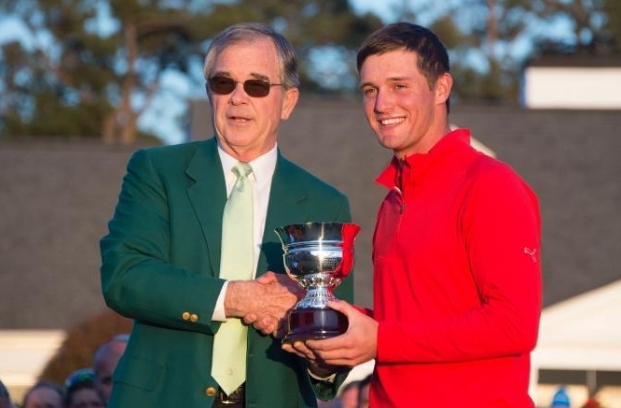When rules are not put into writing, they can create issues because what may be clear to one person is unclear to another. When details aren’t specified, mistakes or misunderstandings can easily arise. That being said, it would be unfair to fault Bryson DeChambeau in this situation.
For quite some time now, DeChambeau has displayed a tendency to unintentionally offend the golfing elite. This is partly because he stands out in a sport that values conformity, and at other times due to his actions such as likening himself to George Washington and Albert Einstein before receiving his tour card or labeling Augusta National as a “par 67” after winning the U.S Open title at Winged Foot. However, prior to developing into who we know him today, Bryson may have unknowingly breached an unspoken rule while playing at Augusta National.
Upon qualifying for the Masters, players are extended an invitation to Augusta National for practice rounds in the months preceding the tournament. Previously, there was no specific restriction on how often individuals could visit this esteemed venue; however, given professionals’ tight schedules,due to their demanding careers and commitments off-court alike – most would only manage one or two visits at best! Amateurs have comparatively more flexibility,and so DeChambeau–winner of 2015’s U.S.Amateur Championship- took full benefit from this exceptional privilege available unto him.
The number of times DeChambeau played before the 2016 Masters is a popular topic in some areas of the golf industry. Although some suggest he made over two dozen trips, it’s likely that this figure is exaggerated. According to reports from the Augusta Chronicle, DeChambeau only visited 12 times during an eight-month period leading up to the tournament (excluding practice rounds for competing). Meanwhile, DeChambeau himself has claimed that he played at least ten rounds prior to participating in The Masters tournament.
During that week, DeChambeau expressed gratitude for having had the opportunity to gain a lot of experience. He stated he couldn’t give an exact figure but confirmed that those 10 rounds played were helpful in his preparations. As it stood then, with all the practice and playing time included, he estimated accumulating about 50 hours worth of valuable information during that period.
Undoubtedly, the practice paid off as DeChambeau came close to taking the lead during his second round as an amateur player. Unfortunately, he fell behind due to a triple-bogey on the 18th hole. Nonetheless, he managed to advance and was recognized for being the top-performing amateur at that event before deciding to transition into professional play in just one week’s time.
